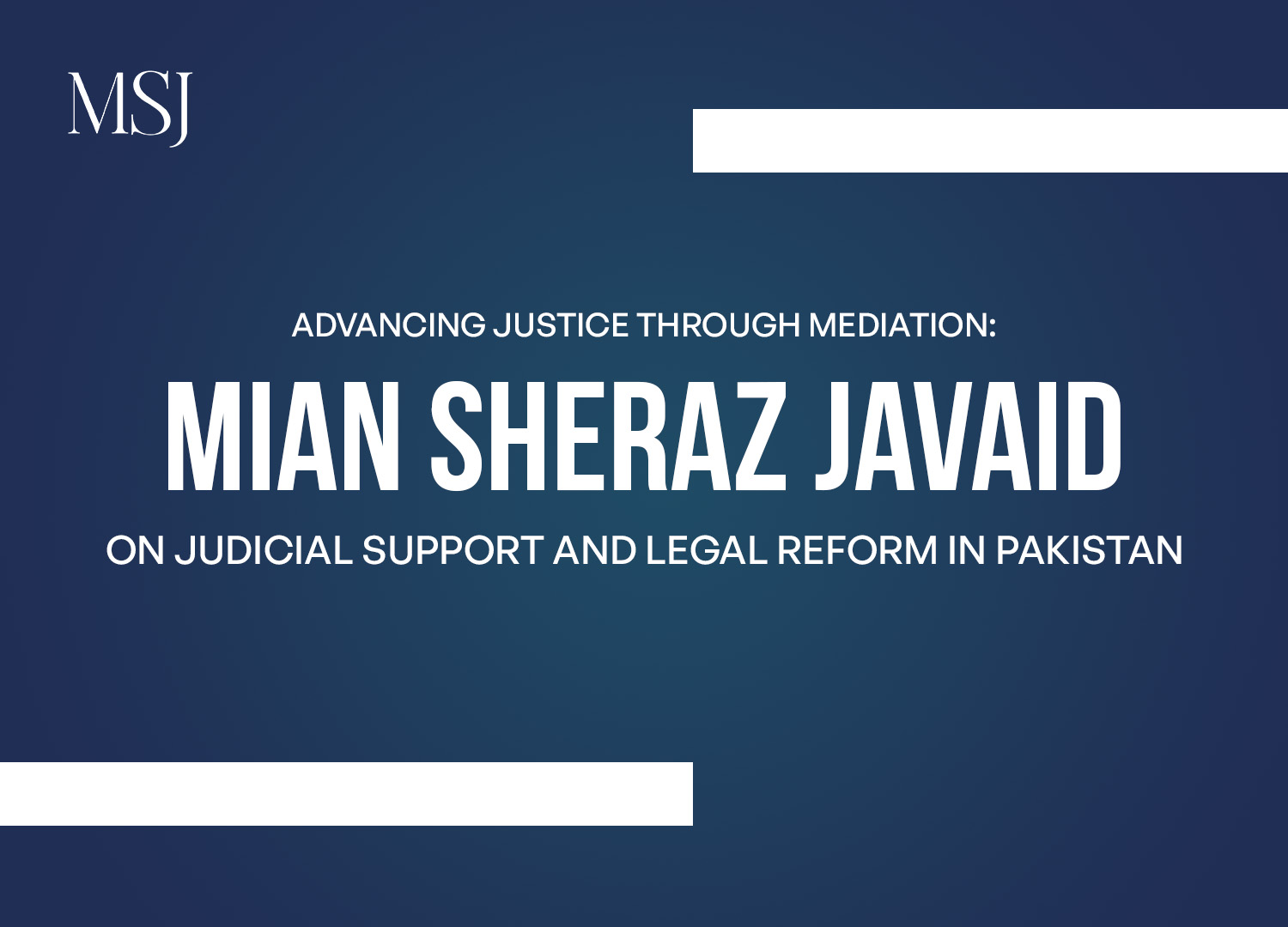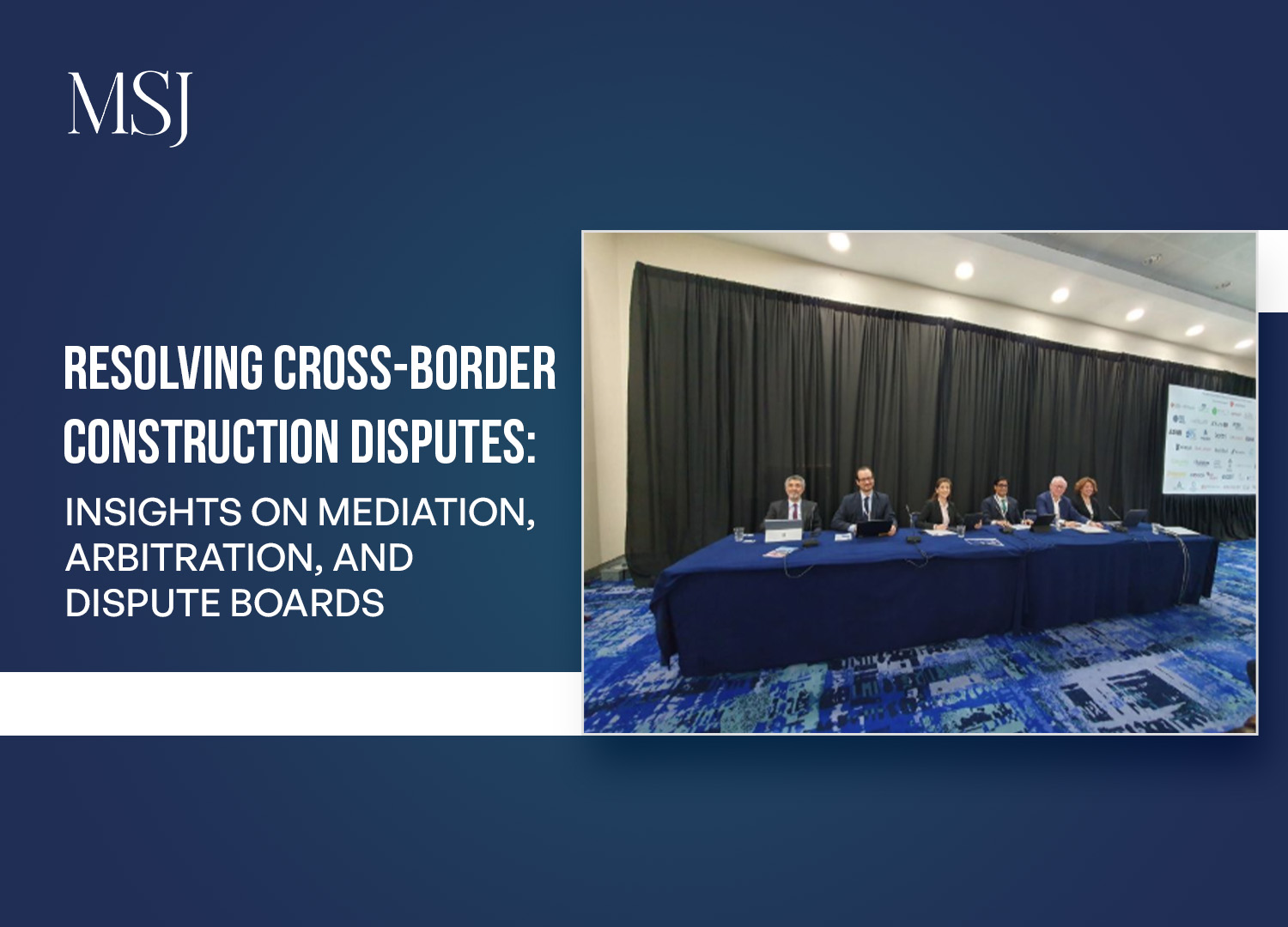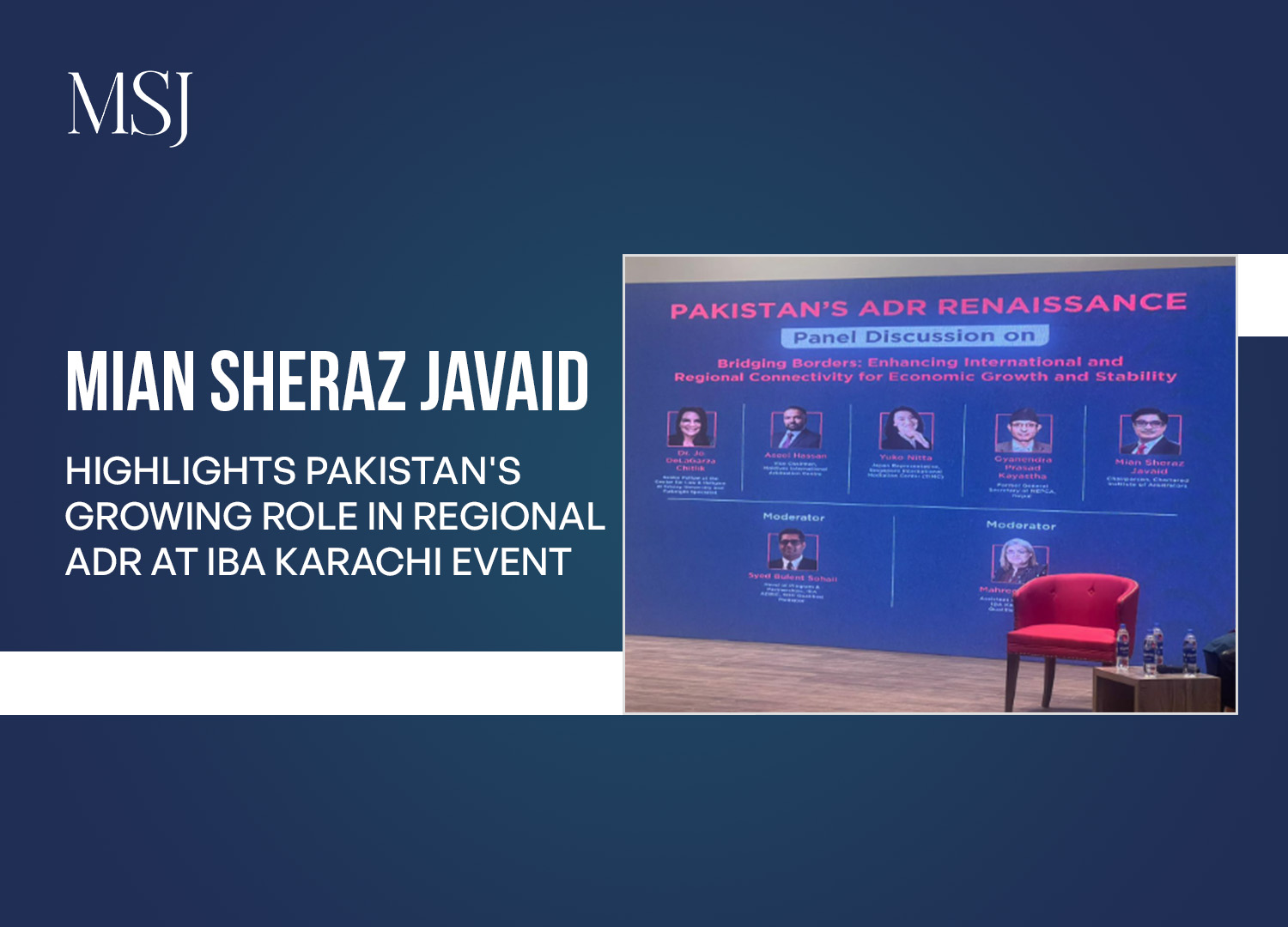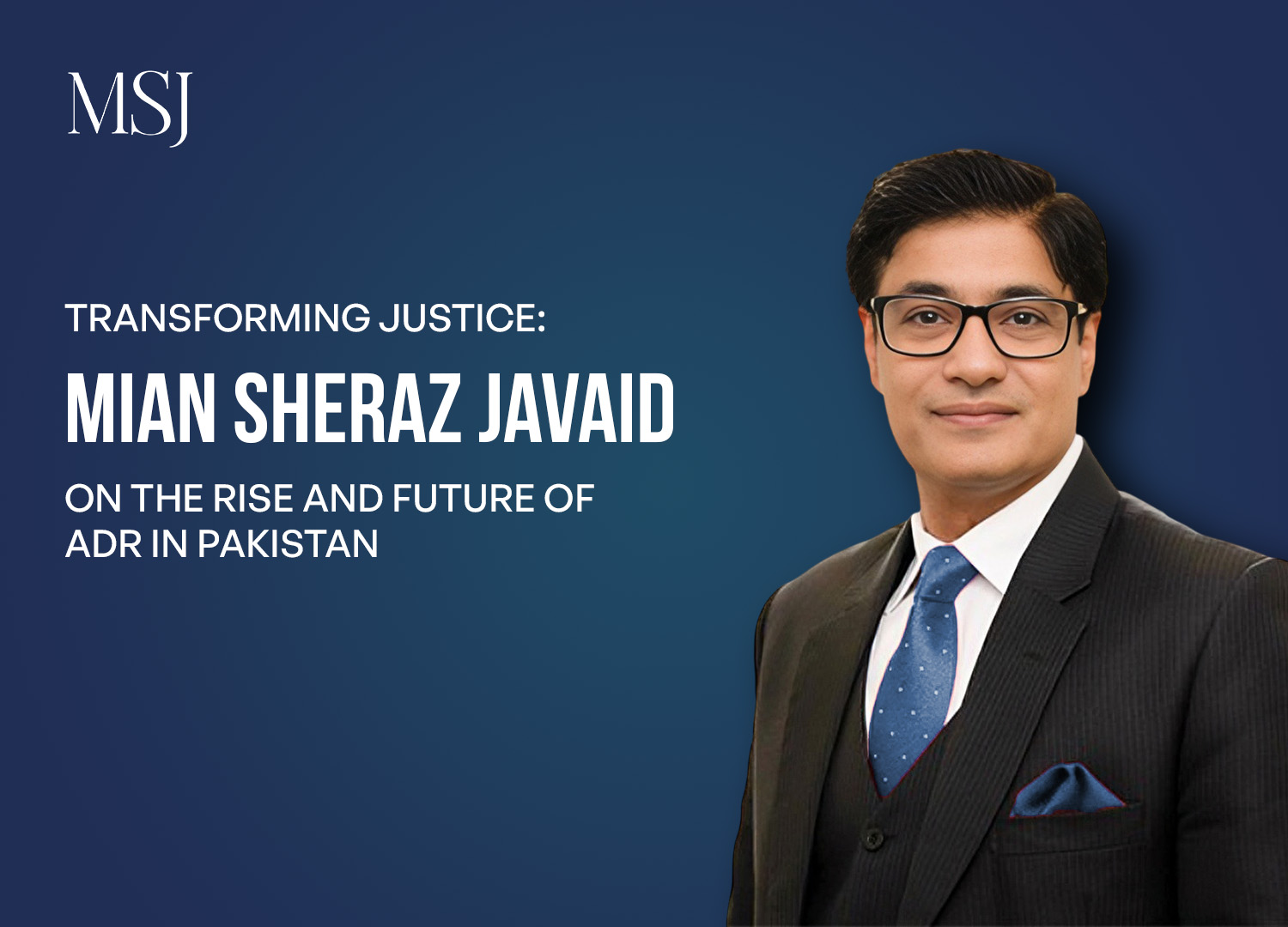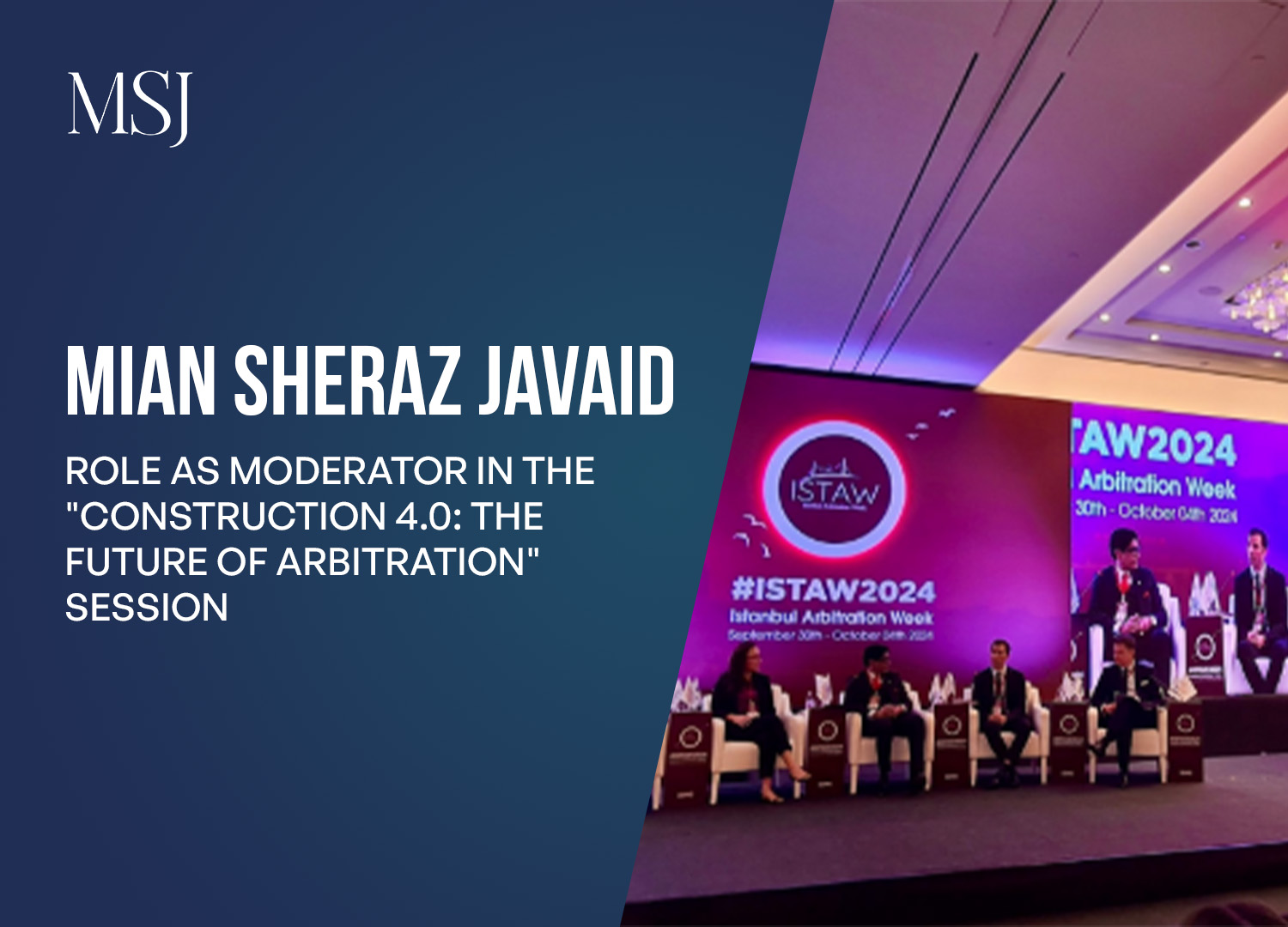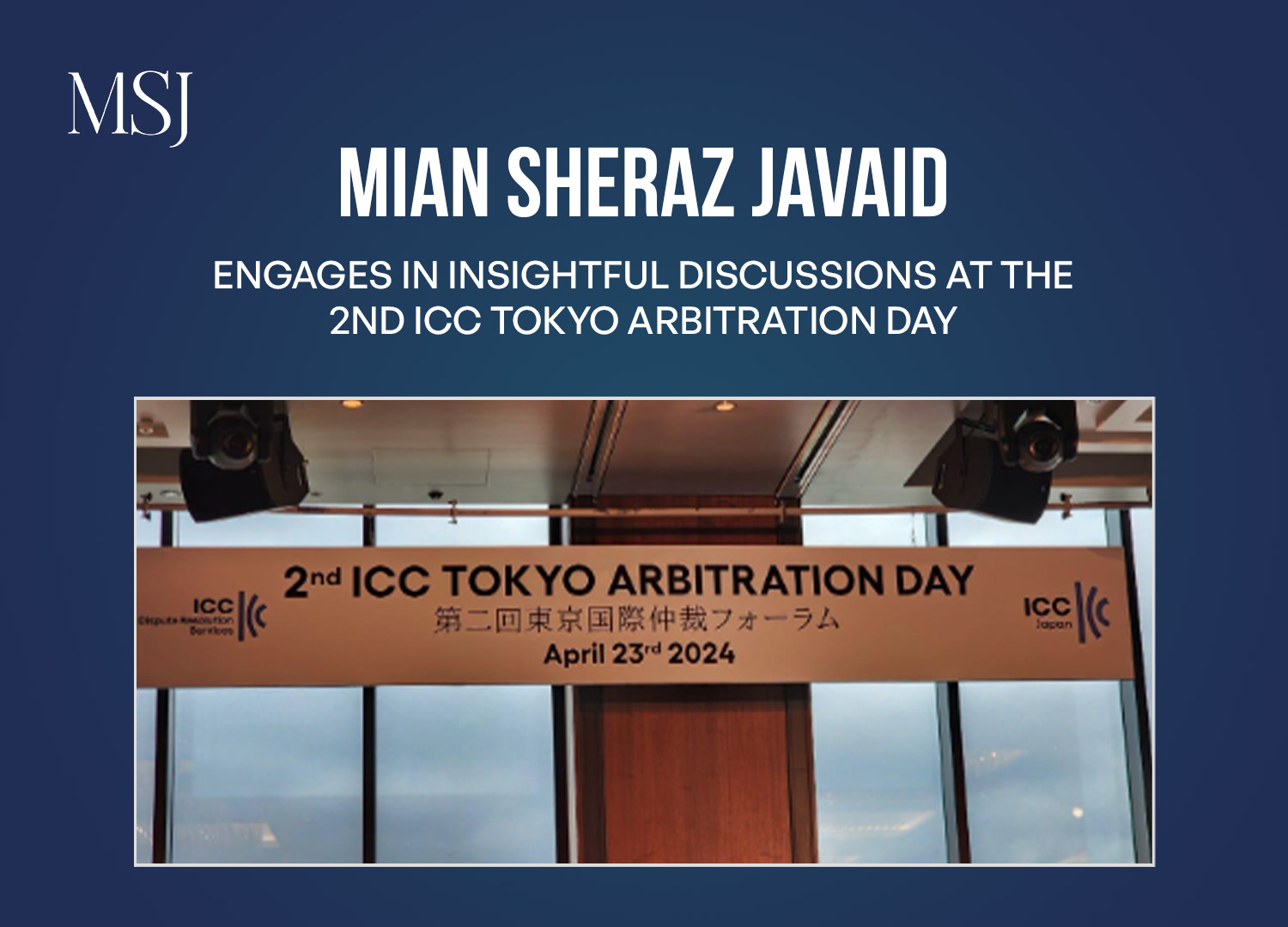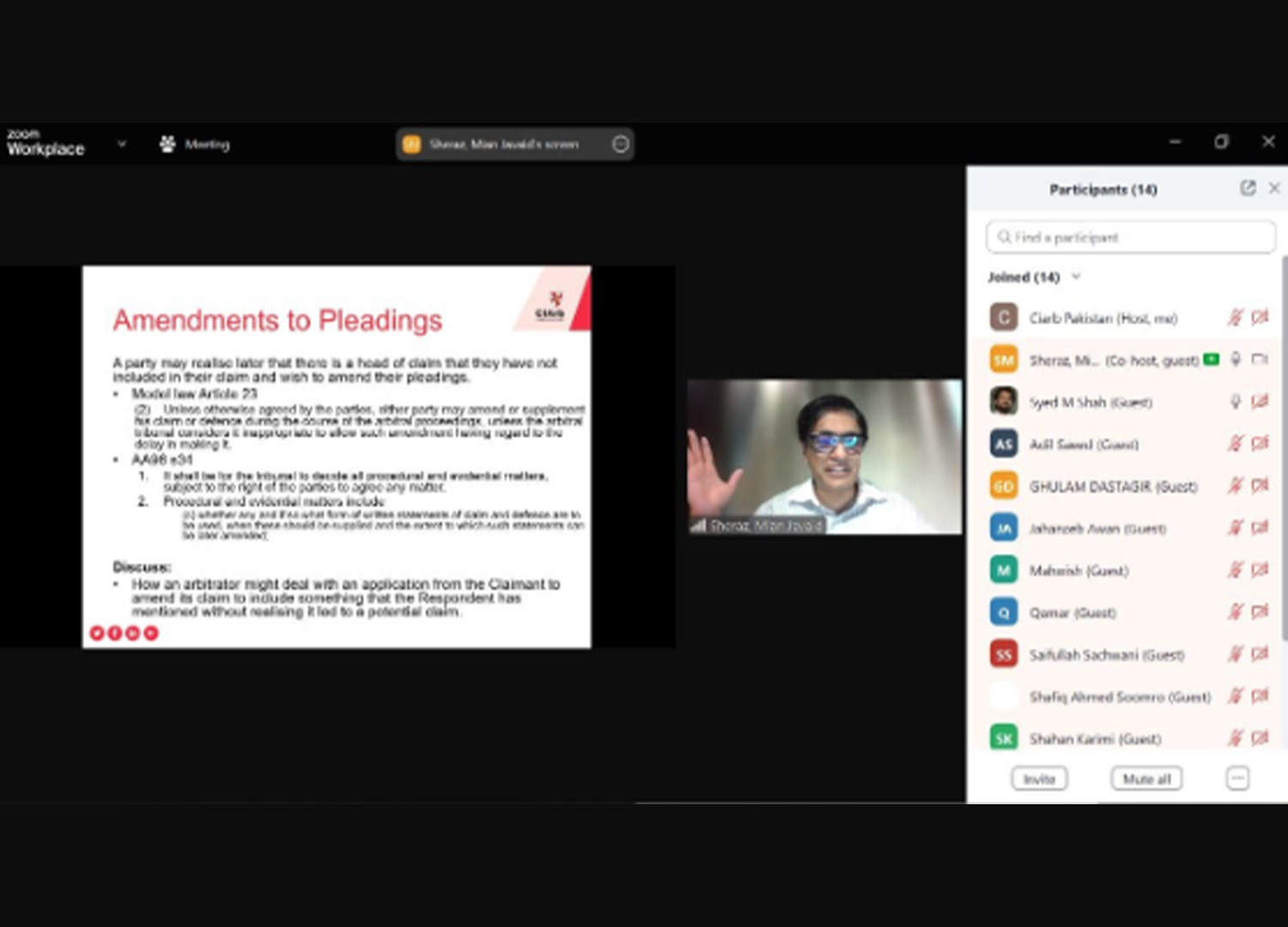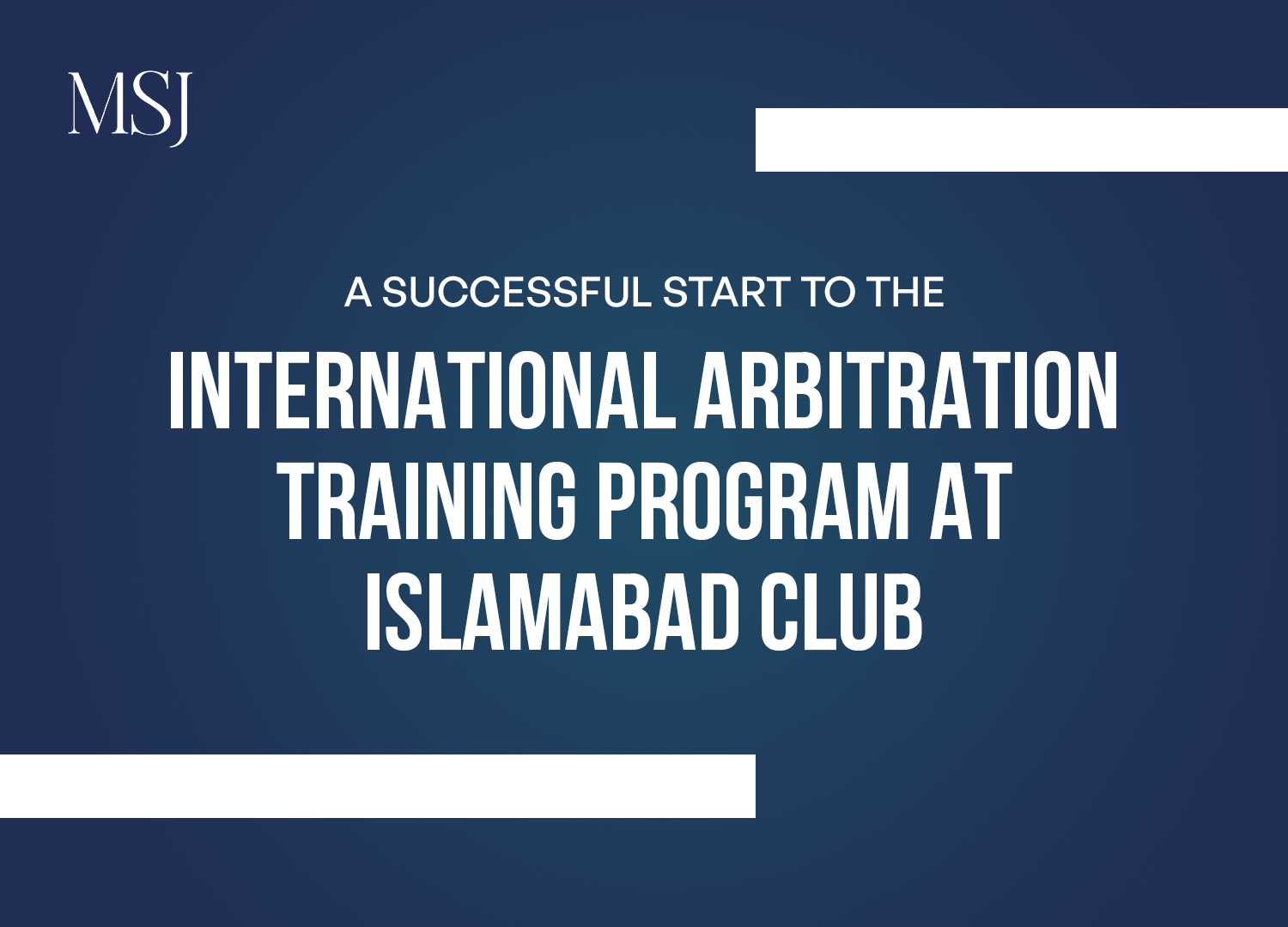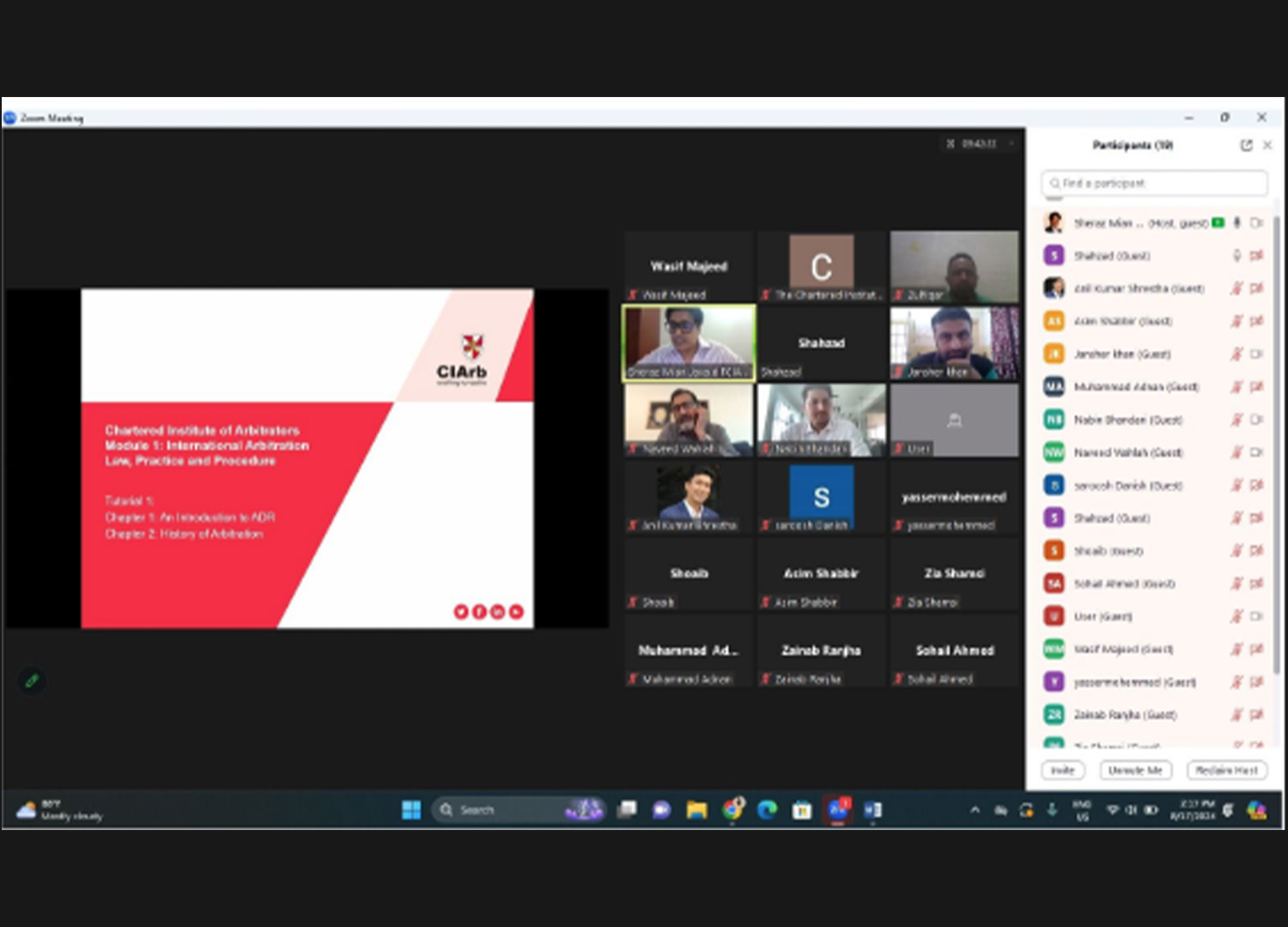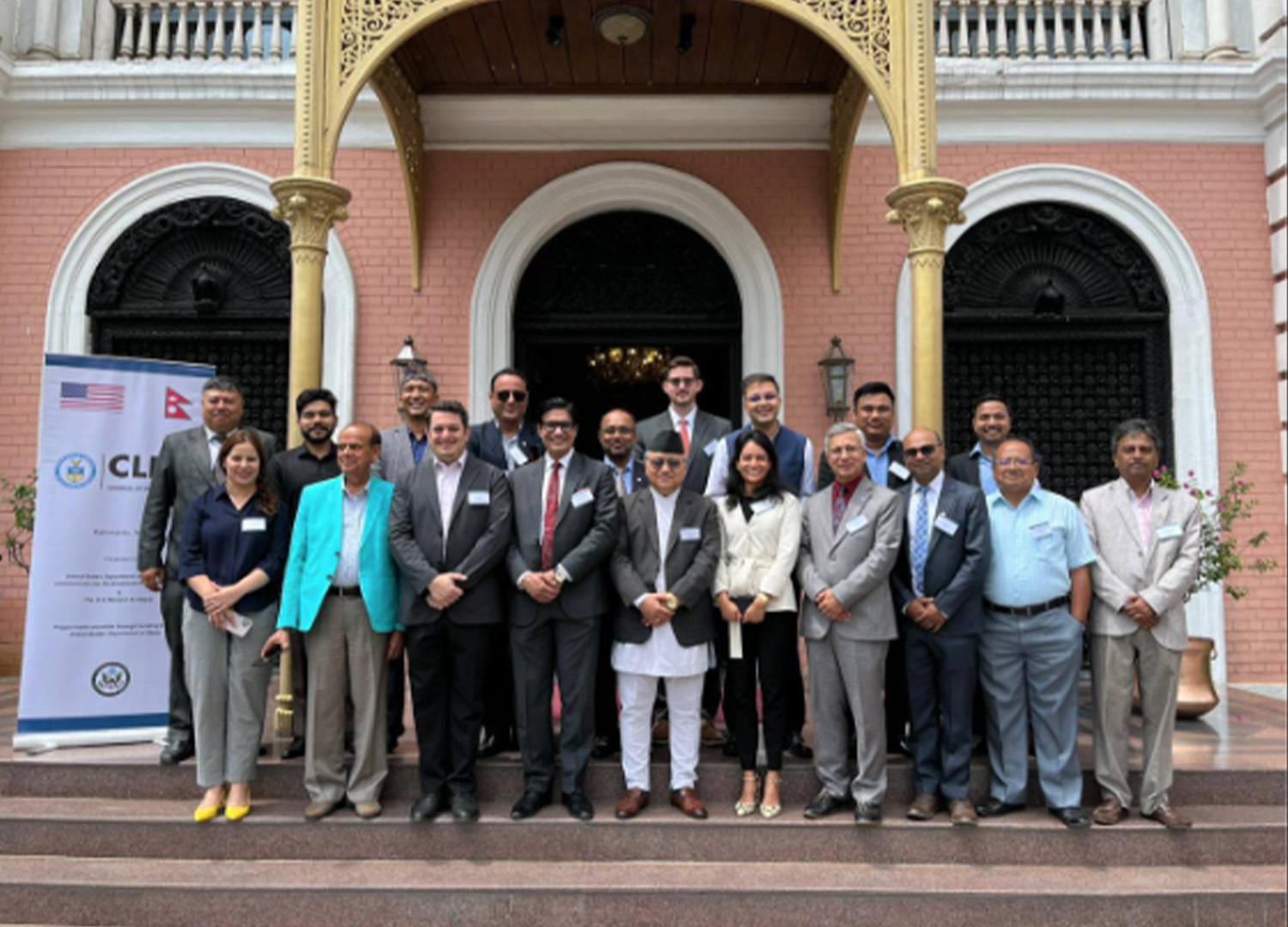MSJ Leads ICC Workshop on Arbitration Hearings in Tokyo
Under Sheraz's keen guidance, the workshop went into the intricacies of evidence handling and the conduct of hearings in international arbitration. These perhaps form the nucleus of all arbitration practice, given their influence on the outcome of international disputes. Sheraz's leadership provided legal professionals from different jurisdictions an opportunity to interact with the best minds in the arbitration law arena. Both theory and practice came into play through the discussions about both case studies and lectures. People were really exposed to many live examples during the session.
The workshop was co-sponsored by two of the most respected law firms in the international arbitration space, Mori Hamada & Matsumoto and DLA Piper, who supported the event to promote excellence in legal practice and to contribute to the continued development of arbitration professionals worldwide. Their collaboration with the ICC Academy gave participants a venue where they would go through very thorough knowledge exchanges, and for that matter, how to practically apply legal principles. The involvement of such well-regarded institutions indicated the importance of the workshop as a contributing step to their professionalism in international arbitration work.
Throughout the two days that the participants attended the workshop, in-depth issues in arbitration were discussed. The first day of the workshop focused on the best practices in taking evidence contained in the IBA Rules on the Taking of Evidence in International Arbitration. This was a critical subject area that answered how evidence could be taken in such a manner that is fair and effective to secure the integrity of the arbitration process. Properly handling evidence becomes necessary for proper determination of results because most disputes arising in the international field have many complex technical, financial, and legal issues involved. In the module on the growing importance of technology in arbitration, attendees also learned about modern tools, especially as regards facilitation in presentation and evaluation of evidence as well as improved efficiency generally. The use of technology in arbitration has increased dramatically in recent years, and the workshop provided a timely opportunity to reflect on its implications and best practices.
One of the most fascinating aspects of the workshop was the discussion on expert reports, an integral component of many international arbitration cases. Expert testimony can often determine the outcome of a case, making it critical for arbitration practitioners to fully understand the nuances involved in preparing, submitting, and evaluating expert evidence. The session addressed how to assess the credibility of expert reports, identify potential biases, and ensure that expert evidence is presented in a way that is both reliable and persuasive.
On the second day, the management of hearings was another critical element of arbitration practice up for discussion. The efficient and just handling of these hearings can have a direct impact on the effectiveness of the dispute resolution process, and the workshop was invaluable in giving insight into the best practices for handling the hearings. Participants discussed lively matters of organisational challenges that arise at the time of hearings, which include scheduling conflicts, ensuring proper preparation of the parties, and coordinating the overall progress of the hearing. Hearing management becomes very crucial, especially in the context of international arbitration, since there are more than one time zone and several legal systems around the world. They are, therefore, given real-life examples on how to beat the hurdles to ensure that a hearing is carried out efficiently and without hitches.
The second day also featured expert-led discussions on effective examination techniques, an essential skill for arbitration practitioners. The art of questioning witnesses and experts can significantly impact the success of a case, and the workshop’s practical sessions gave participants the opportunity to sharpen their cross-examination skills. Leading figures in the arbitration community, including Alexander Fessas, Daniel Allen, Douglas Kenji Freeman, James Morrison, Lars Markert, and Tony Andriotis, shared their wealth of experience with the participants, providing invaluable insights into the finer points of effective examination and witness handling. These experts also offered practical advice on how to navigate the challenges that arise in complex arbitration proceedings, drawing on their extensive careers in international dispute resolution.


